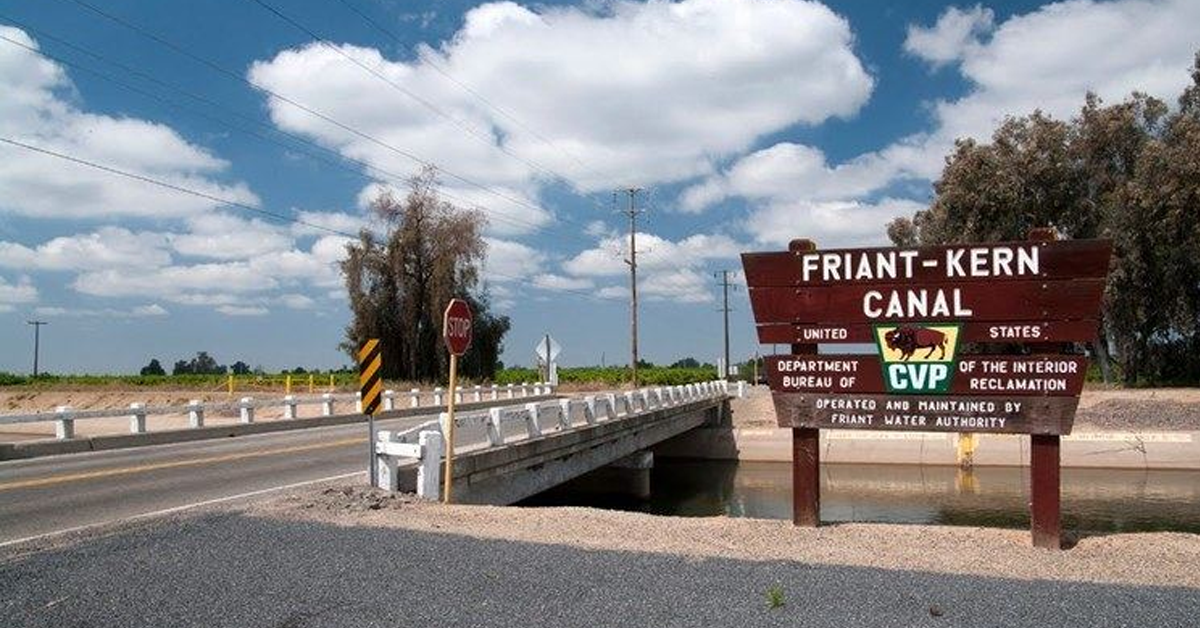Without significant changes to how water is managed in California, the state’s future looks grim as it is held hostage by extreme environmentalists.
That was one of the major takeaways from a House of Representatives field hearing held in the Central Valley on Friday.
The big picture: House Subcommittee on Water, Wildlife and Fisheries Chairman Cliff Bentz (R–Oregon) and Rep. John Duarte (R–Modesto) held a field hearing titled “Water Abundance: Opportunities and Challenges in California” in Santa Nella.
- Joining Bentz and Duarte were Rep. Vince Fong (R–Bakersfield), Rep. Doug LaMalfa (R–Richvale), Rep. Tom McClintock (R–Elk Grove) and Rep. David Valadao (R–Hanford).
- The subcommittee also invited the Bureau of Reclamation, the U.S. Fish and Wildlife Service and the National Oceanic and Atmospheric Administration to testify, but the Biden administration chose not to participate.
- “It’s unacceptable that federal agencies that manage the operations of this impressive and irreplaceable federal project, sometimes in ways that negatively impact communities right here today, are blatantly ignoring Congressional oversight,” Bentz said.
- Six witnesses testified at the hearing: Friant Water Authority CEO Jason Phillips, Westlands Water District General Manager Allison Febbo, environmental attorney Ronda Lucas, Harris Farms Executive Vice President William Bourdeau, South Delta Water Agency Manager John Herrick and Turlock Irrigation District Director of External Affairs Josh Weimer.
Influence from extreme environmentalists: Much of Friday’s hearing focused on the outsized impact environmentalists have had on California’s water management.
- Duarte kicked things off by pointing out how California has the largest precipitation bank in the world in the Pacific Ocean right off the largest watershed in the world in the Sierra Nevada Mountains, along with the most fertile valley in the world.
- “This should’ve been the western hemisphere’s garden of eden,” Duarte said. “And it has been. We flew over a great deal of it today, but it’s not doing everything it can do. And only the misguided environmentalist extremists and the politics of Washington D.C. and California could screw up this setting and hurt what it should be helping, with no positive outcomes whatsoever.”
- Febbo said Westlands recognizes and acknowledges the state’s efforts to support conservation and recovery of its endangered species, but actions this year are working against California’s water supply.
- “However, this year has produced several examples of where the current regulatory framework for environmental compliance decision-making has prevented nimble action, at a high cost to water supply,” Febbo said.
- The environmental focus on California’s water management contributed to South-of-Delta farmers only receiving 50% of their contracted water this year.
- “The scarcity of water caused by mismanagement is not just a problem for farmers – it’s a problem for everyone,” Bourdeau said. “When farms cannot produce at full capacity, the supply of domestically grown food decreases, leading to higher food prices for all Americans. This man-made water scarcity artificially inflates the cost of basic food items, disproportionately affecting low-income families and the most vulnerable members of our society. It forces consumers to pay more at the grocery stores, compounding financial stress on households already struggling with inflation and economic uncertainty.”
Overregulation: Going hand-in-hand with the environmental focus has been the overregulation perpetrated by a large bureaucracy of unelected officials.
- Bentz asked Phillips, a former employee of the Bureau of Reclamation, what he would change with the agency.
- “When I’ve been area manager or deputy regional director in the past, my philosophy is the Bureau of Reclamation would not exist but for its responsibility to deliver water to its customers in its full amount,” Phillips answered. “And every single day of their job should be spent trying to do that and not take on the responsibility of other agencies.”
- Febbo addressed how several state and federal regulatory agencies are responsible for enforcing federal laws such as the Endangered Species Act and the Clean Water Act.
- “These authorities, separately and in combination, do not address the key constraints to species recovery – as demonstrated by the lack of recovery or even conservation despite the high cost to California’s water supply over the past three decades,” Febbo said. “The result is a disorganized and convoluted regulatory system which often confuses roles, hampers communications, and frustrates innovation and nimbleness.”
- Part of the conversation turned to the lack of new water infrastructure in California, which is desperately needed.
- But Phillips had a grim warning for the committee, saying that no amount of infrastructure could fix poor water management.
- “To be clear, without regulatory reform to stop the uncontrolled, unending taking of California’s water supplies in pursuit of the proven failed approach to recover endangered species, there is no amount of new infrastructure, recycling, efficiency, or any other form of water supply development that can bring us to a place of abundance,” Phillips said. “Without this reform, the only plausible outcome will be a level of farmland retirement in the next decade we have not seen in our lifetimes.”
Watch the hearing:










